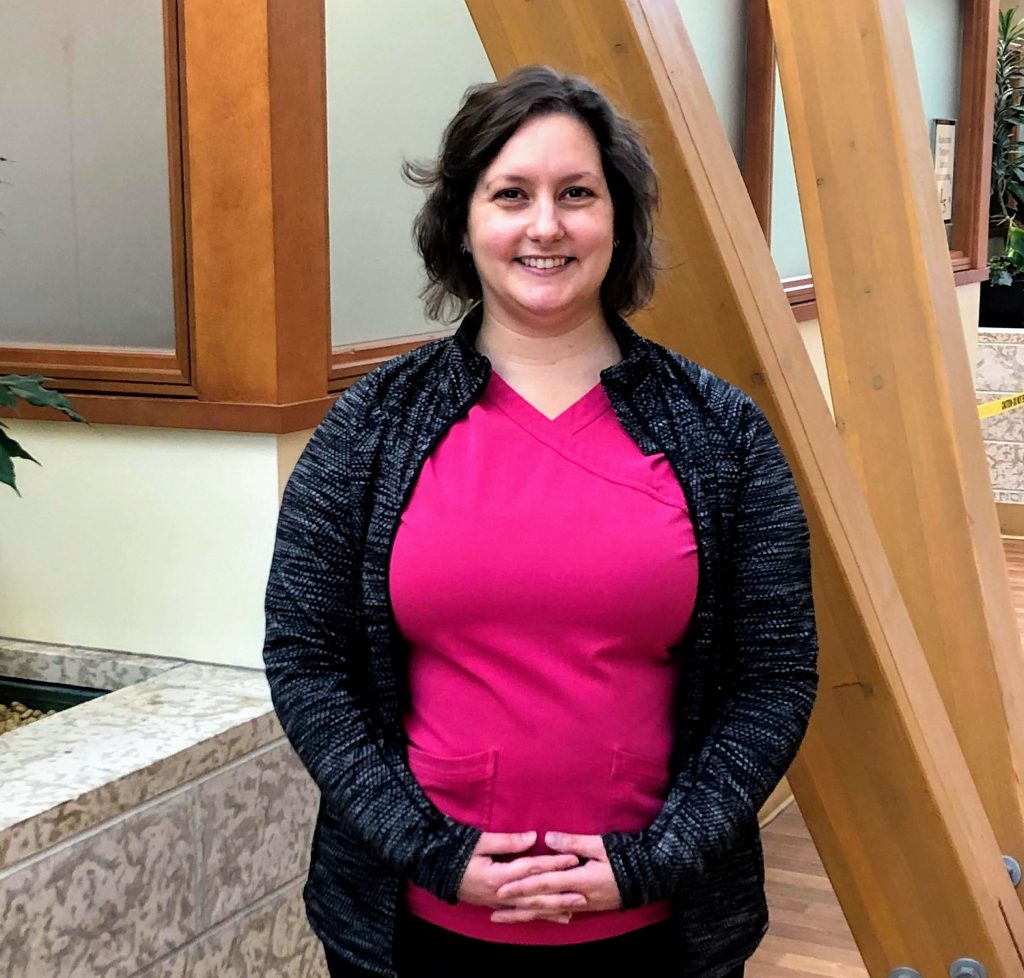Breast Cancer Awareness Month Profile: Jessica DiFelice
by Caitlund Davidson
 Jessica DiFelice is a radiation therapist at the Regional Cancer Centre.
Jessica DiFelice is a radiation therapist at the Regional Cancer Centre.It’s Breast Cancer Awareness Month, and we’re highlighting staff at Thunder Bay Regional Health Sciences Centre who play a vital role in the breast cancer journey. From cancer screening to cancer treatment, there are hundreds of caring professionals that you will meet along the way. Today, we’re sharing a Q & A from Jessica DiFelice, a radiation therapist at the Regional Cancer Centre.
Describe your role for us.
I am a radiation therapist and I treat cancer patients with radiation. We see patients daily and deliver the treatment the radiation oncologist has prescribed and planned.
What does it take to be a radiation therapist?
Schooling to be a radiation therapist includes a 4-year degree that is part academic work and part clinical experience. Our final year is spent in the clinic working with patients and completing practical skills assessments. We then write a certification exam at the end that we must pass to work in Canada. In addition to schooling, it takes compassion and empathy to be a radiation therapist. We deal with many types of patients, from curative to palliative. As a radiation therapist we need to be able to comfort and talk with our patients about how they are feeling and help them through their cancer journey. We also require attention to detail because we have to be precise when delivering a patient’s treatment.
What is unique about your role?
Many people don’t know what radiation therapy is until they have to come for treatment. It is up to us to guide our patients through the process of treatment and help answer any questions they may have about radiation therapy.
What inspired you to work in cancer care?
My inspiration for working in cancer care is my family. I have had many family members with cancer and I was inspired by how positively they talked about the people delivering their care. I wanted to help people through their treatments. We had a presentation in university about the different types of Medical Radiation Technologists and the Radiation Therapy specialization really resonated with me. I enjoy that we get to interact with patients and see them on a day-to-day basis.
How does your role impact patient care?
We are an important part of the cancer journey. We aren’t just there to help deal with side effects and the physical part of treatment; we are there for the emotional part as well. We can be a shoulder to cry on, or someone to tell jokes to (or tell jokes ourselves to cheer patient’s up). We want our patients to feel comfortable and we try our best to make their day.